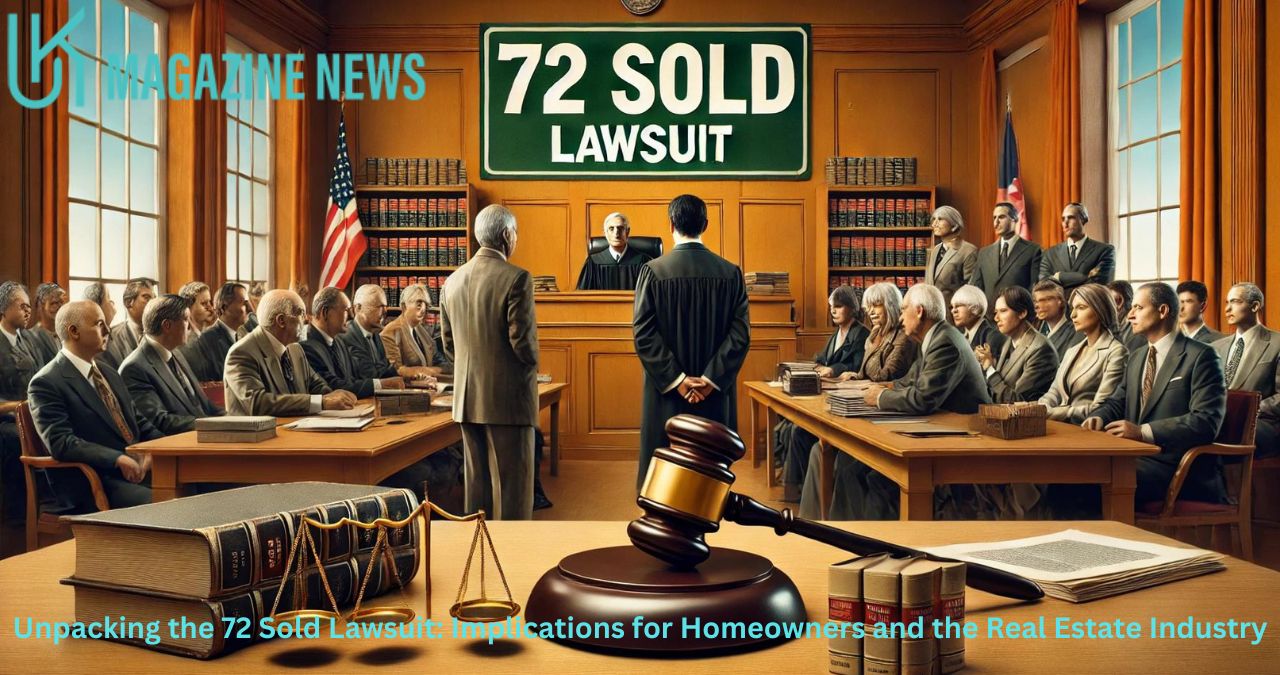The real estate industry has recently been shaken by the controversy surrounding the “72 Sold Lawsuit” program, which has led to a significant lawsuit. This article delves into the key aspects of the lawsuit, its implications for the real estate market, and what it means for homeowners and potential buyers. We’ll explore the origins of the lawsuit, the main allegations, and the potential outcomes that could reshape real estate practices.
What is 72 Sold Lawsuit?
72 Sold is a real estate program that promises homeowners a fast and efficient way to sell their properties in just 72 hours. The program, which has gained popularity for its convenience and speed, claims to streamline the home-selling process, offering sellers a quick and hassle-free experience. However, this very approach has now led to legal scrutiny and a high-profile lawsuit.
The Origins of the Lawsuit
The lawsuit against 72 Sold stems from allegations that the program misrepresented its services and failed to deliver on its promises. Several homeowners have come forward, claiming that the program’s marketing tactics were deceptive, leading them to believe they would receive better offers or quicker sales than traditional methods. The plaintiffs argue that they were misled into signing contracts that ultimately did not meet their expectations.
Allegations of Deceptive Marketing
Central to the lawsuit are accusations of deceptive marketing practices. Plaintiffs allege that 72 Sold used aggressive advertising to create a false sense of urgency and guarantee results that were not achievable. The program’s advertisements often highlighted the speed of sales without disclosing potential downsides or the fine print involved. This has led to accusations of false advertising and consumer fraud.
Impact on Homeowners
For homeowners who participated in the 72 Sold program, the lawsuit brings to light concerns about transparency and fairness in the real estate industry. Many of these homeowners are now questioning whether they were given accurate information about the market value of their homes and whether they received the best possible offers. The lawsuit could lead to significant financial repercussions for those involved and raise awareness about the need for clear and honest communication in real estate transactions.
Legal Implications for the Real Estate Industry
The 72 Sold lawsuit has broader implications for the real estate industry as a whole. If the allegations are proven true, it could set a precedent for how real estate programs and agents market their services. The case highlights the importance of ethical advertising and the need for regulatory oversight to protect consumers from misleading claims. Real estate professionals may need to reconsider their marketing strategies and ensure that all claims are substantiated and transparent.
Potential Outcomes of the Lawsuit
The outcome of the 72 Sold lawsuit could have far-reaching consequences for both the plaintiffs and the defendants. If the court rules in favor of the plaintiffs, 72 Sold could face substantial financial penalties and be required to change its business practices. Additionally, the case could lead to stricter regulations governing real estate advertising, ensuring that consumers are better protected from deceptive marketing tactics.
Lessons for Homeowners and Sellers
For homeowners and potential sellers, the 72 Sold lawsuit serves as a cautionary tale. It underscores the importance of thoroughly researching any real estate program or agent before signing a contract. Sellers should seek multiple opinions on the value of their property, read all contracts carefully, and ask questions about any claims that seem too good to be true. Transparency and due diligence are key to avoiding potential pitfalls in the real estate market.
The Role of Consumer Protection
The lawsuit also highlights the role of consumer protection agencies in safeguarding the interests of homeowners. As real estate programs and services continue to evolve, it is essential that consumers have access to accurate information and that they are protected from unfair practices. Regulatory bodies may need to step up their oversight of real estate advertising to ensure that programs like 72 Sold adhere to ethical standards.
The Future of Real Estate Marketing
The 72 Sold lawsuit could mark a turning point in how real estate services are marketed in the future. If the lawsuit results in significant changes to industry practices, we may see a shift towards more transparent and consumer-friendly advertising. Real estate professionals will need to adapt to these changes, focusing on building trust with clients through honest communication and delivering on their promises.
Conclusion
The 72 Sold lawsuit serves as a critical reminder of the need for integrity and transparency in the real estate industry. As the case unfolds, it will be important to monitor the legal proceedings and consider the potential impacts on homeowners, real estate professionals, and the broader market. Whether you’re a homeowner considering selling your property or a real estate agent looking to refine your marketing strategies, the lessons from this lawsuit are clear: honesty, transparency, and consumer protection must be at the forefront of all real estate transactions.





